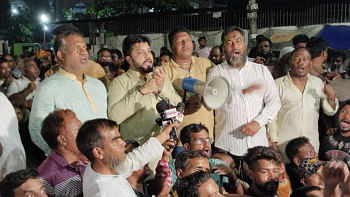Sweden says 34 year mystery of PM assassination is solved

A Swedish prosecutor closed the case of the 1986 assassination of Prime Minister Olof Palme yesterday+, accusing an insurance company graphic designer who died 20 years ago of the country's most notorious unsolved crime.
Palme, who led Sweden's Social Democrats for decades and served two periods as prime minister, was one of the architects of Scandinavia's model of a strong welfare state, and a fierce Cold War-era critic of both the United States and Soviet Union.
He was shot dead in central Stockholm in 1986 after a visit to the cinema with his wife and son. The failure of the police to find a killer has sparked decades of conspiracy theories, unlikely to be silenced by Wednesday's accusation against a long dead suspect with no political profile.
Prosecutor Krister Petersson, who has led an investigation into the case since 2017, said the killer was Stig Engstrom, a suspect long known to Swedes as "Skandia man" after the company where he worked, with offices near the scene of the shooting.
Engstrom, known to have been at the scene, was repeatedly questioned in early investigations but dismissed as a serious suspect at the time. He died in 2000 in what appeared to be a suicide.
A 2018 book by an investigative journalist brought to light a range of previously overlooked evidence, including time stamps showing Engstrom had left his office earlier than he had told police, in time to commit the crime.
"Because the person is dead, I cannot bring charges against him and have decided to close the investigation," Petersson said.
Palme's son, Marten said he also believed Engstrom was the killer, "but unfortunately there is no real conclusive evidence".
Palme was prime minister from 1969-1976 and again from 1982-1986. Supporters hail him as the architect of modern Sweden, while conservatives denounced his anti-colonialist views and criticism of the United States.
For decades, conspiracy theories around his killing have blamed a range of forces, from the CIA and Kurdish separatists to the South African security services.

 For all latest news, follow The Daily Star's Google News channel.
For all latest news, follow The Daily Star's Google News channel. 



Comments